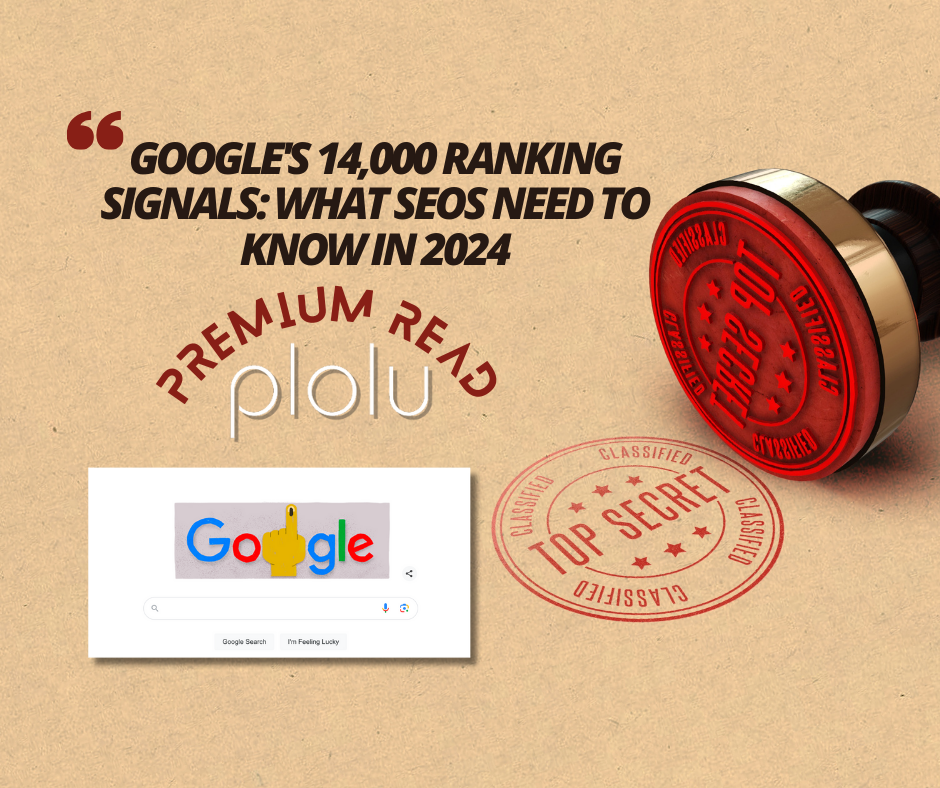Introduction
In the ever-evolving world of search engine optimization (SEO), staying ahead of the game is crucial. Recently, a major claim has surfaced on Twitter, stirring the SEO community: a leaked document allegedly reveals Google’s ranking signals—an astonishing 14,000 of them. This blog delves into the implications of this leak, explores its authenticity, and offers insights on how SEOs should approach this information.
The Leak: Fact or Fiction?
What Was Leaked?
According to prominent SEO figures Mike King and Rand Fishkin, a secret document detailing Google’s ranking signals has been leaked. This document, allegedly containing 14,000 signals, was supposedly published accidentally via Google’s Content Warehouse API support documentation. The question remains: are these actual ranking signals, or merely internal use documents?
The Source of the Leak
The document was discovered by SEO professional Irfan Azimi, who shared it with Rand Fishkin and Mike King. Both analyzed and blogged about their findings. Importantly, this wasn’t a deliberate leak by a disgruntled Google employee, but rather an accidental discovery by an SEO expert.
Google’s Alleged Deception
The controversy extends to whether Google has misled the public about its ranking factors. Historically, Google has denied using metrics like Domain Authority (DA), yet the leaked document frequently mentions “Site Authority.” This discrepancy has led to calls for Google to clarify or even apologize for previous statements.
Key Insights from the Leak
Site Authority vs. Domain Authority
One of the most debated points is the mention of “Site Authority” in the leaked document. Rand Fishkin, who popularized DA through Moz, argues that Google has finally acknowledged a concept akin to DA. However, it’s crucial to differentiate between Moz’s DA and Google’s Site Authority, which likely operates on a different algorithmic basis.
Click-Through Rate (CTR) and User Behavior
The document suggests that Google might be using CTR and user behavior data from Chrome to influence rankings, despite Google’s public denials. This implies a more personalized search experience, where user interaction history can affect search results.
Other Notable Ranking Factors
The leaked document also introduces terms like “Anchor Mismatch,” “Nav Demotion,” and “Product Review Demotion.” These indicate sophisticated ways Google may penalize or rank pages based on content relevance, quality, and user experience. Additionally, the frequency of crawler visits and the age of domains are mentioned as potential factors.
How Should SEOs Respond?
Don’t Panic: Analyze and Adapt
It’s essential not to overreact to this leak. Many of the signals, like CTR and high-quality content, have long been known to impact SEO. Instead of trying to memorize 14,000 signals, SEOs should focus on creating user-centric, high-quality content that aligns with these principles.
Emphasize User Experience
Google’s ultimate goal is to provide the best user experience. This means SEOs should prioritize answering user queries effectively and ensuring their websites are fast, mobile-friendly, and secure.
Stay Informed but Skeptical
While this leak provides interesting insights, it’s vital to remain skeptical. Not all the information might be directly relevant or applicable. Continuous learning and adapting to verified Google updates should be the priority.
Conclusion
The alleged leak of Google’s 14,000 ranking signals has sparked significant debate and curiosity within the SEO community. While it offers a treasure trove of information, SEOs should remain focused on proven strategies and user experience improvements. As the digital landscape evolves, staying informed and adaptable will always be the key to success.
Comments and Discussion
What are your thoughts on the leaked document? Do you believe these are actual ranking signals? Share your opinions in the comments below, and let’s continue the conversation.



